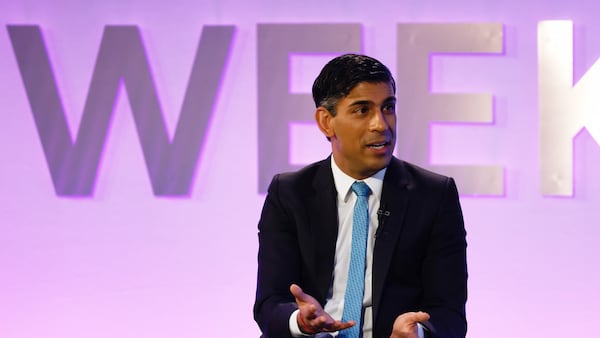- TradFi giants had backed portfolio rivals to bridge leading DEX with BNB blockchain.
- a16z threw its votes behind LayerZero in February to no avail as Jump’s Wormhole won over UNI delegates.
- Uniswap also taps bridge Axelar for plum role.
One of the most closely watched conflicts in DeFi reached a climax Thursday when the Uniswap bridge review committee selected Wormhole to be the decentralised exchange’s favoured system for linking users to other blockchain networks.
The committee also chose another bridge called Axelar.
Big win
This is a big win for Wormhole, one of the many so-called cross-chain bridge projects vying for traction in the crypto market. Uniswap, the top decentralised exchange in crypto with about $800 million in daily trading volume, is about as big as they come in DeFi.
It’s also a victory for Jump Crypto, the web3 investment division of Jump Trading, the Chicago-based high-frequency trading outfit that invested an undisclosed amount in Wormhole in 2022 when it helped the venture find its footing after getting hacked.
NOW READ: Uniswap’s v4 gives devs powerful ‘hooks’ tool but there’s a catch — more risk
On the losing side is LayerZero, a cross-chain bridge backed by a16z, the Silicon Valley venture capital firm that has committed more than $7 billion of its clients’ money to web3 and crypto startups. In April, it led a $120 million funding round in LayerZero.
Things get heated
“The Committee has concluded that two bridges, Axelar and Wormhole, show sufficient promise to be used by the Uniswap DAO in cross-chain governance,” it said in a statement released Thursday.
The committee also said that after assessing the LayerZero protocol, it concluded that it does not “currently satisfy” the full breadth of the requirements of the Uniswap DAO’s cross-chain governance needs. “But is on a path to do so,” the panel said.
In normal circumstances, the selection of a provider of DeFi infrastructure would have been a no-drama situation. But somewhere along the way in this months-long process, things got heated as Wormhole and LayerZero jockeyed for advantage.
As a result, the episode offered a rare glimpse into the tensions around governance of DeFi ventures, especially when two TradFi giants are involved.
NOW READ: European Union launches institution to build blockchain infrastructure across continent
The conflict reached a boiling point in February when a16z used 15 million Uniswap tokens to vote against using Wormhole as the preferred bridge for deploying Uniswap v3 on the BNB Chain.
A16z partners questioned Wormhole’s reliability at the time. “We do not believe Wormhole offers the most secure or decentralised bridging option,” Porter Smith, a partner at the venture firm co-founded by Marc Andreessen and Ben Horowitz, said at the time. Smith was alluding to a $326 million hack of WHAT which happened in early 2022.
Hacks & exploits
Crypto bridges have become one of the most vulnerable and attacked pieces of the DeFi architecture. Decentralised protocols accounted for over 80%, or $3.1 billion, of all crypto stolen in 2022, according to Chainalysis reports. Cross-chain bridge protocols accounted for some 64%, around $2 billion, of these hacks.
In March, the Uniswap Foundation created a special committee to assess cross-chain bridge solutions for future Uniswap v3 deployments. The six-member bridge assessment committee was mandated to examine eight bridge providers, including Wormhole and LayerZero.
NOW READ: Crypto bill author McHenry says SEC should have ‘taken out’ Binance years ago
The process posed a test for Jump and a16z, which are used to getting equity in startups they back, not tokens. Thanks to their outsized investments in their respective bridges, the two firms received influential voting rights in Uniswap’s governance process.
In an effort to avoid bias in the governance process, large token holders can delegate tokens to ensure greater independence in voting. However, the system isn’t perfect.
Independent voting
Delegations can be revoked, and the practice can’t be relied upon to deliver independent governance, Jump Crypto argued last October.
Token delegation programs require the independence of the delegate from the token holder, Jump said, quoting a16z’s Jeff Amico who noted the importance of “empower[ing] each delegate to vote independently from the token holder, in whatever way they see fit.”
‘There have been episodes where that independence was deliberately undermined ahead of key governance proposals.’
— Jump Crypto
Most existing token delegation contracts do not enforce this independence, Jump argued, going on to say “There have been episodes where that independence was deliberately undermined ahead of key governance proposals.”
Back in 2021, a16z’s involvement in the Defi Education Fund caused concern amongst Uniswap users, including Chris Blec, who claimed the proposal for the fund only won “due to governance delegates using voting power given to them by a16z.”
a16z votes against deployment
In February, a16z voted against a proposal to deploy the latest Uniswap iteration on the BNB chain. Jump Crypto took no part in the voting process, a spokesperson told The Block at the time.
A16z was unsuccessful, and many of its delegated tokens were used to vote against its portfolio company LayerZero, according to an a16z representative.
NOW READ: Feds grab win against Ooki DAO but who will pay the $650,000 penalty?
The venture firm’s decision to vote brought its role in the decentralised exchange to light. Binance’s Changpeng Zhao questioned whether the investor had a chokehold over it, “Uniswap controlled by a16z?”
Chris Blec responded to Zhao with “we’ve known this for a while,” with the exchange CEO replied “On-chain voting just means the large whale(s) control the blockchain then. Just like shareholders.”
The selection of Wormhole on Thursday marks a nice development for Jump Crypto strategy in the space. But questions about the concentration of governance power sure to persist.
With reporting by Tim Craig and Osato Avan-Omayo.
Have a tip about DeFi or DEXs? Contact the author at adam@dlnews.com.





